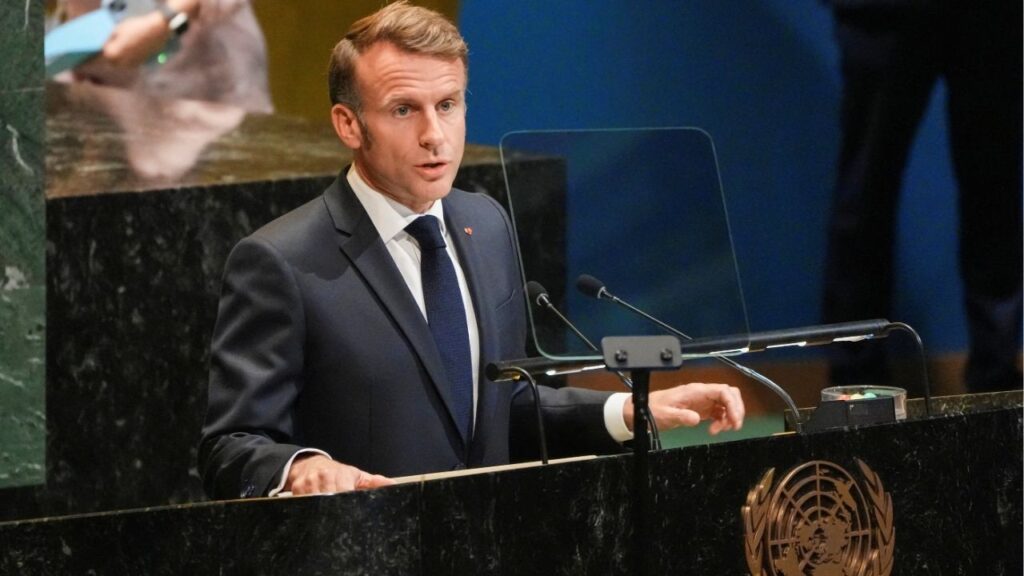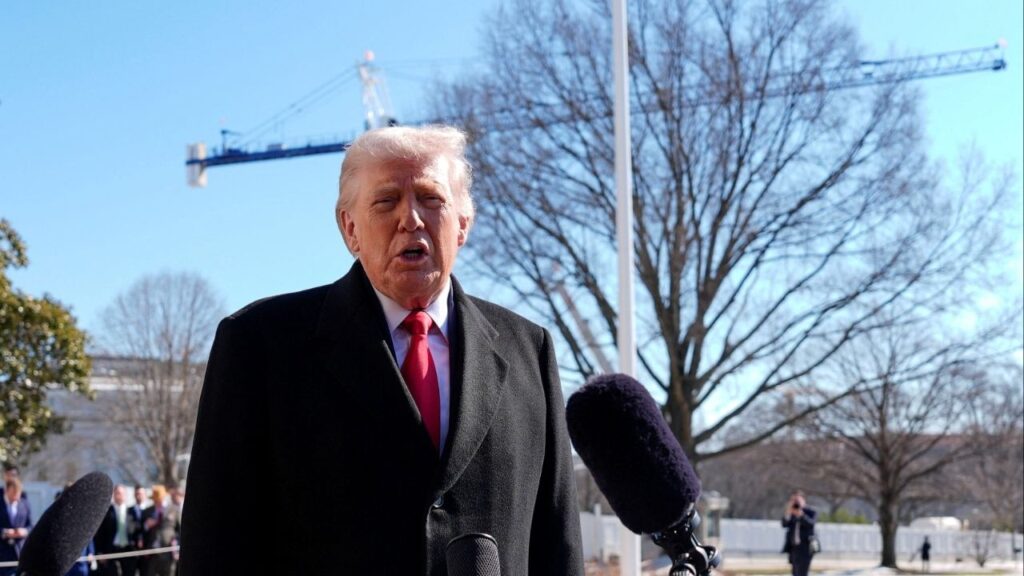Share
JERUSALEM — Prime Minister Benjamin Netanyahu’s corruption trial resumed Monday, with a key witness painting a picture of an image-obsessed Israeli leader forcing a prominent news site to flatter his family and smear his opponents.
The testimony came as Netanyahu’s chances of securing another term in office following last month’s parliamentary elections appeared to be dwindling in high-stakes political talks hosted by the country’s figurehead president just a few miles (kilometers) away.
In a nationally televised address, Netanyahu accused prosecutors of persecuting him in an attempt to undermine the will of the voters and to drive him out of office.
“This is what a coup attempt looks like,” he said.
Netanyahu Loses Political Support Amid Accusations
Taken together, the court testimony and political consultations pointed to an increasingly uphill struggle for Netanyahu as he fights for his political life.
In a post-election ritual, President Reuven Rivlin was consulting with the various parties elected to parliament before choosing a candidate to form a new government.
With both Netanyahu and his main rival, Yair Lapid, failing to gain the support of a majority of lawmakers, Rivlin faces a difficult task, and the country risks plunging into an unprecedented fifth consecutive election campaign in the coming weeks.
Late on Wednesday, Lapid called on the country’s anti-Netanyahu factions — a patchwork of parties with vast ideological differences — to put aside their differences and form a unity government. He said he had even offered Naftali Bennett, leader of a small right-wing party, a power-sharing rotation, with Bennett serving first as prime minister.
“Anyone who saw Netanyahu’s reckless performance today understands he can’t carry on in his job,” Lapid said. “We know how to bridge divides. We don’t hate one another.”
Netanyahu has been charged with fraud, breach of trust and accepting bribes in three separate cases. Monday’s proceedings, the first in two months, marked the beginning of the evidentiary phase, in which a long line of witnesses are to take the stand against the prime minister.
Paying for Positive Coverage
The session focused on the most serious case against Netanyahu — in which he is accused of promoting regulations that delivered hundreds of millions of dollars of profits to the Bezeq telecom company in exchange for positive coverage on the firm’s popular news site, Walla.
Ilan Yeshua, Walla’s former chief editor, described a system in which Bezeq’s owners, Shaul and Iris Elovitch, repeatedly pressured him to publish favorable things about Netanyahu and smear the prime minister’s rivals.
The explanation he was given by the couple? “That’s what the prime minister wanted,” he said.
He said the pressure went on “for hours on end” over several years. The Elotviches, who are also defendants in the case, chose photos, headlines, word choice and other content.
Yeshua said they also ordered him to write unfavorable articles about Netanyahu’s rivals, giving them pejorative nicknames. Naftali Bennett, a former Netanyahu ally turned rival, was known as “the naughty religious one,” and former Finance Minister Moshe Kahlon, who is of North African descent, was called “smiley” and “the Arab.”
Yeshua said he never spoke directly to Netanyahu, and that requests also came from intermediaries, including former Netanyahu aide Nir Hefez, who has turned state’s witness and is also expected to testify against the prime minister.
“It was clear that I needed to comply with Nir’s requests to put up positive articles, and remove negative ones,” Yeshua said.
He said his staff was furious about the pressure and one editor even nicknamed the prime minister “Kim,” after the North Korean dictator Kim Jong Un.
He said Shaul Elovitch referred to Netanyahu as “the big guy,” and would also show him text messages from the prime minister’s son, Yair, asking for articles to be changed or taken down.
At one point in the proceedings, Iris Elovitch screamed out: “How much can you lie?”
In another case, Netanyahu is accused of accepting gifts worth hundreds of thousands of dollars from wealthy associates, including Hollywood film mogul Arnon Milchan and Australian billionaire James Packer. In the third case, Netanyahu is accused of trying to orchestrate positive coverage in a major Israeli newspaper in exchange for curbing distribution of a free pro-Netanyahu tabloid. Netanyahu denies all charges.
Netanyahu Accuses Prosecutors of Conducting a ‘Witch Hunt’ Against Him
In his televised statement, Netanyahu accused prosecutors of conducting a “witch hunt” against him.
“They didn’t investigate a crime. They didn’t look for a crime,” he said. “They went after a man. They went after me.”
At the beginning of Monday’s session, Netanyahu sat with his lawyers as lead prosecutor Liat Ben-Ari read out the charges against him.
“The relationship between Netanyahu and the defendants became currency, something that could be traded,” she said. “The currency could distort a public servant’s judgment.”
He then left the courthouse before Yeshua’s testimony.
Outside the courtroom, dozens of supporters and opponents of the prime minister gathered to protest amid a heavy police presence, highlighting Israel’s deep divisions.
While a ruling could be months or even years away, the proceedings are expected to take place up to three days a week, an embarrassing and time-consuming distraction that is certain to amplify calls for Netanyahu to step aside.
The March 23 election was seen as a referendum on Netanyahu’s leadership, with his opponents saying a politician on trial for serious charges is unfit to rule. The election, Israel’s fourth in two years, ended in a deadlock.
Netanyahu is desperate to stay in power, hoping to use his office as a bully pulpit to lash out against prosecutors and potentially forming a government that could grant him immunity. But that scenario was looking increasingly distant Monday.
After a day of consultations, neither Netanyahu’s allies nor his foes secured a 61-seat governing majority. Parties recommending Netanyahu hold a total of 52 seats, while parties recommending Lapid hold 45 seats. Two Arab parties, holding a total of 10 seats, and the small New Hope party, led by a former Netanyahu ally who now opposes him, did not recommend any candidate.
Bennett, leader of the right-wing Yamina party, recommended himself as a compromise candidate.
Yamina has just seven seats in parliament. But Bennett is hoping he can become a consensus candidate who can bridge the deep divides between the rival factions.
Rivlin has until midnight Wednesday to choose a prime minister-designate who would be given up to six weeks to form a coalition. If he feels there is no clear choice, he also could send the issue straight to the Knesset, ordering lawmakers to choose a member as prime minister or force another election.
Israeli law does not require prime ministers to resign while under indictment, and Netanyahu has refused to do so. Some of Netanyahu’s opponents have talked about passing legislation that would bar an indicted politician from serving as prime minister in order to disqualify him ahead of another election.



















